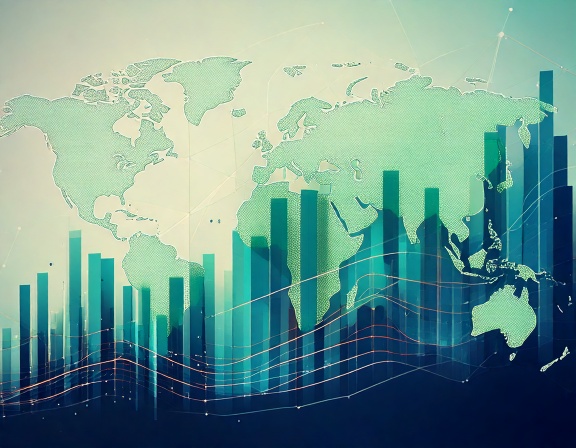European shipping execs opt for deals to cope with uncertainty — Dealspeak EMEA
European shipping executives and their advisors are grappling with deep uncertainties and unanswered questions impacting the future of the industry.
How will shipping adapt to the energy transition? How will on-again, off-again tariffs impact global trade? Will increased defence spending have an impact on shipbuilding?
Despite the difficulties in forward planning in such a complex scenario with so many moving parts, Norwegian shipping magnate John Fredriksen spoke for many in the industry when he said in June that the best deals can be made in turbulent times.
Perhaps surprisingly, this bullish view has become mainstream. “There is a solid appetite across the board – from private investors, international funds, and industrial players alike,” according to Morten Berggreen, a partner at Gorrissen Federspiel. The firm has a dedicated shipping M&A team.
There have been 35 European shipping deals in the year to date (YTD), according to Mergermarket data. The aggregate disclosed volumes, EUR 5.3bn, represent the highest YTD dealmaking since the same period in 2008.
On the other hand, the deal count is the lowest in this period since YTD 2005, implying that the average ticket size has grown in uncertain times.
The most significant deals include a merger between the Bermuda-based subsidiary of CMB.TECH of Belgium with Golden Ocean Group of Bermuda. The deal will create one of the largest listed diversified maritime groups in the world with a fleet of around 250 vessels.
Another large deal got underway in February when AP Moller-Maersk of Denmark initiated a demerger and separate listing of its towage and marine services activities Svitzer, which was completed in April.

Global trade wobbles
The global transition to clean energy is a complex issue for decision-makers in shipping. Roughly 40% of all bulk shipping globally is for coal, oil, and gas, while ships themselves mostly run on oil.
In that context, it is noteworthy that CMB.TECH, the diversified maritime group with the largest deal in the YTD, has pioneered hydrogen and ammonia as shipping fuel.
Many shipowners are seeking reinvested profits made in recent years in future-proofing their businesses and growing their offerings, Berggreen said.
Tariffs are also complex for shipping companies. In April, maritime consultancy Drewry said in a webinar that it expected global container port volume to fall by 1.0% in 2025, representing just the third annual drop since the consultancy began collecting that data in 1979. However, its forecast changed to +1.9% following US President Donald Trump’s decision to press pause on his tariffs plan, a spokesperson said.
Berggreen said, “While global trade uncertainty poses challenges, the shipping industry is known for always finding a way to move goods. Some shipowners expect to be positioned to take advantage of the potential long-term shifts in trade patterns caused by tariffs or the introduction of new US port fees.”
Meanwhile, China has become the biggest shipbuilding power in the world by developing dual-use shipyards under its military-civil fusion strategy.
Increased defence spending is a major theme for the European members of the North Atlantic Treaty Organization (NATO). A read-through from the Chinese example suggests potential upside for European shipbuilders if NATO copies this dual-use approach. Of course, this scenario remains speculative for now.
JVs in focus
One name to watch in the months ahead is Greek shipping giant Capital Maritime & Trading (also known as Capital Ship Management). It has been looking at acquisitions, its Chairman Evangelos Marinakis told Mergermarket in January.
Marinakis said at the time that there has been much talk of mergers, acquisitions, and joint ventures (JVs) behind the scenes, with many players waiting for a less volatile market before taking any decisions.
Downstream of shipping itself, providers of tech to the industry are also in an expansive mood. For example, Optics11, a Dutch provider of fibre-optics sensors, is likely to consider one or two European bolt-on acquisitions in 2026 or 2027, its CEO Paul Heiden said in May. One of its solutions provides maritime data on ship movements.
Meanwhile, Kpler, a Brussels-based trade intelligence platform, is interested in buying data analytics companies in the commodities, shipping, maritime, logistics, or risk and compliance sectors, Francois Cazor, co-founder and chairman, said in April.
It is often said that fortune favours the brave. European shipping executives and their advisors appear to be taking the maxim to heart by bulking up despite not knowing what, exactly, the future will look like.
| Announced date | Target | Target nationality | Acquiror | Divestor | Deal value (EUR bn) |
|---|---|---|---|---|---|
| 22-Dec-23 | CMB TECH Enterprises (100%) | Netherlands | Euronav | Compagnie Maritime Belge | 3.31 |
| 13-Nov-23 | Capital Maritime & Trading (11 newbuild LNG carriers, 100%) | Greece | Capital Product Partners | Capital Maritime & Trading | 2.93 |
| 09-Oct-23 | Euronav (Euronav- ECO fleet of 24 VLCCs, 100%) | Belgium | Frontline | Euronav | 2.23 |
| 22-Apr-25 | Golden Ocean Group (50.63%) | Norway | CMB.Tech | 1.86 | |
| 13-Sep-23 | Hamburger Hafen und Logistik (50.1%) | Germany | MSC Mediterranean Shipping | City State of Hamburg | 1.59 |
| 13-Jan-21 | Golar LNG Partners (100%) | UK | New Fortress Energy | Golar LNG | 1.56 |
| 30-Apr-24 | Svitzer (100%) | Denmark | Existing Shareholders | AP Moller-Maersk | 1.50 |
| 05-Oct-23 | Euronav (34.24%) | Belgium | Saverco Compagnie Maritime Belge |
Famatown Finance Frontline |
1.21 |
| 04-Mar-25 | Golden Ocean Group (40.79%) | Norway | CMB.Tech | Hemen Holding | 1.12 |
| 24-Mar-20 | Peel Ports (25%) | UK | AustralianSuper Peel Land & Property Investments DWS Group AustralianSuper |
Whittaker Group | 1.08 |
Source: Mergermarket, data correct as at 03-06-25









